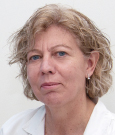I am honored to be the 52nd President of ASCO and thrilled to have followed in the steps of six remarkable women to hold this important leadership position in a professional Society that represents nearly 40,000 oncologists around the world caring for people with cancer. My six female predecessors are: Rose Ruth Ellison, MD, FASCO (1974–1975); Karen H. Antman, MD, FASCO (1994–1995); Margaret A. Tempero, MD, FASCO (2003–2004); Sandra J. Horning, MD, FASCO (2005–2006); Nancy E. Davidson, MD, FASCO (2007–2008); and Sandra M. Swain, MD, FASCO (2012–2013).
In the coming years, I am hoping there will be many more women elected to the office of President of ASCO, but I know that female oncologists have not risen to the top ranks of leadership in academic medicine as quickly as have our male counterparts. We need to do more to enhance and support the role of women leaders in oncology.
Helping Women Succeed in Oncology
According to ASCO’s 2015 report The State of Cancer Care in America,1 the proportion of women in medical oncology continues to grow, with women now accounting for slightly more than 30% of practicing oncologists in the United States. And although women comprise 47% of medical school graduates, their numbers dwindle in academic faculty positions (38%); full professorship positions (21%); and leadership positions, such as department chairs or deans (between 15% and 16%).2
Recognizing the challenges women in oncology often encounter as they progress in their careers, at the 2013 Annual Meeting, ASCO launched Women in Oncology: Challenges and Keys to Success, an educational session exploring gender trends in the oncology and physician workforce; barriers to career development and professional satisfaction; and strategies to successfully develop and mentor young female oncologists. At the 2015 Annual Meeting, we expanded the session to include the Women’s Networking Center, a program focused on professional development. There will be additional programs to support women in their careers during the 2016 Annual Meeting, including expanded small-group networking sessions bringing together women oncology leaders and young female oncologists to enhance education, career opportunities, and mentorship.
Supporting the career development of women in oncology was also a major topic during the 2015 European Cancer Congress (ECC) this past September. Two years ago, the European Society for Medical Oncology (ESMO) started shedding light on the limited presence of women oncologists in leadership positions compared to the increasing number of women in medical school and working in the field of oncology. So ESMO launched its Women for Oncology initiative to support the professional development of women oncologists and their access to leadership positions.
At this year’s ECC meeting, ESMO presented its inaugural Women for Oncology Award to Enriqueta Felip, MD, PhD, Head of the Lung Cancer Unit in the Oncology Department at Vall d’Hebron University Hospital in Barcelona, Spain, for her contribution to the career development of female oncologists.
Steps to Attaining Leadership Positions
The process to enhance and support women in attaining leadership roles in oncology needs to start early in their medical education. Here are some ways we can help women attain the leadership skills necessary to reach their career goals:
- Urge female medical school students to get involved in ASCO-sponsored cancer interest groups, which help connect medical students with resources and information about careers in oncology. For information visit, asco.org/professional-development/resources-medical-students.
- Match medical students, residents, and fellows with research opportunities— ranging from both clinical and basic research—to enhance their career goals.
- Champion early-career mentorships. Mentoring represents one of the most critical opportunities for shaping a woman’s career in oncology. Matching mentees with the right mentor (male or female) can focus the mentees’ goals and help them succeed.
- Promote the development of students,’ residents,’ and fellows’ leadership skills through professional leadership programs at home institutions or through ASCO’s Leadership Development Program (asco
.org/professional-development/leadership-development-program). - Connect promising early-career oncologists with a career sponsor, a medical professional beyond a mentor, who can offer advice on networking opportunities and provide professional introductions.
- Introduce young oncologists to key role models who can demonstrate how to work productively and as a collaborative team member.
- Encourage young oncologists to get involved in professional societies, such as ASCO. Volunteering to serve on a committee; applying for participation in a leadership program, such as ASCO’s Leadership Development Program; and learning from seasoned oncologists from across the country and around the world about the oncology issues they face enhance the educational process for women and present new career opportunities.
- Recommend that early-career oncologists obtain additional leadership training with an advanced degree, such as an MBA, with a focus on health care or participate in the Hedwig van Ameringen Executive Leadership in Academic Medicine (ELAM), a year-long, part-time fellowship program for women faculty in schools of medicine and public health offered at Drexel University College of Medicine (drexel.edu/medicine/Academics/Womens-Health-and-Leadership/ELAM).
- Support women in oncology through programs such as Women Who Conquer Cancer (conquercancerfoundation.org/women-who-conquer-cancer), a Conquer Cancer Foundation initiative that funds research by female physician-scientists through ASCO’s Young Investigator Awards.
Although the future looks very bright for women leaders in oncology, improving their number in leadership positions within their home institutions, practices, and national societies will take active engagement by all oncology professionals, including trainees, early-career oncologists, mentors, and sponsors. Let’s all do our share to support the development of women oncologists in leadership positions in their careers. We will all benefit from their accomplishments, especially our patients. n
Disclosure: Dr. Vose reported no potential conflicts of interest.
References
1. ASCO: The State of Cancer Care in America, 2015: A report by ASCO. J Oncol Pract 11:79-113, 2015.
2. Association of American Medical Colleges: The State of Women in Academic Medicine: The Pipeline and Pathways to Leadership, 2013-2014. Available at https://www.aamc.org/members/gwims/statistics/. Accessed November 3, 2015.
Dr. Vose is President of ASCO; the Neumann M. and Mildred E. Harris Professional Chair; and Chief, Oncology/Hematology Division, Department of Internal Medicine, University of Nebraska Medical Center, Omaha.



